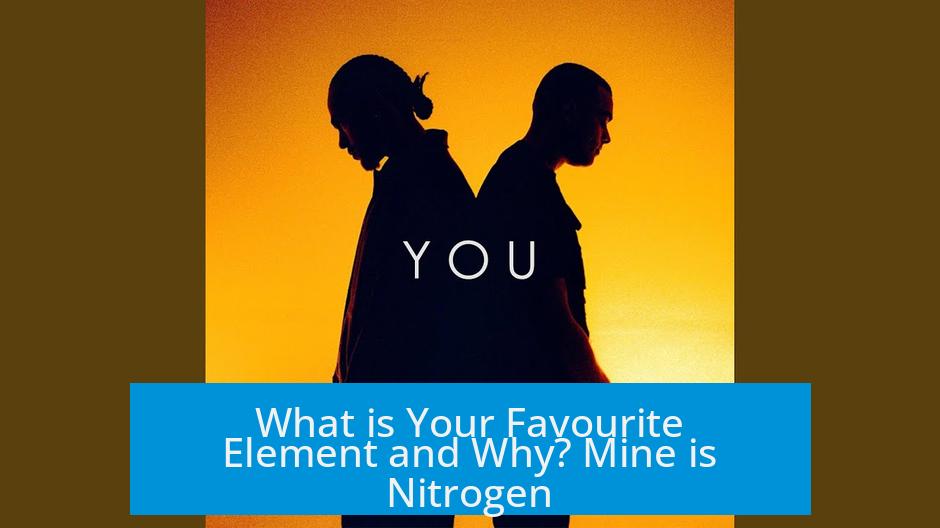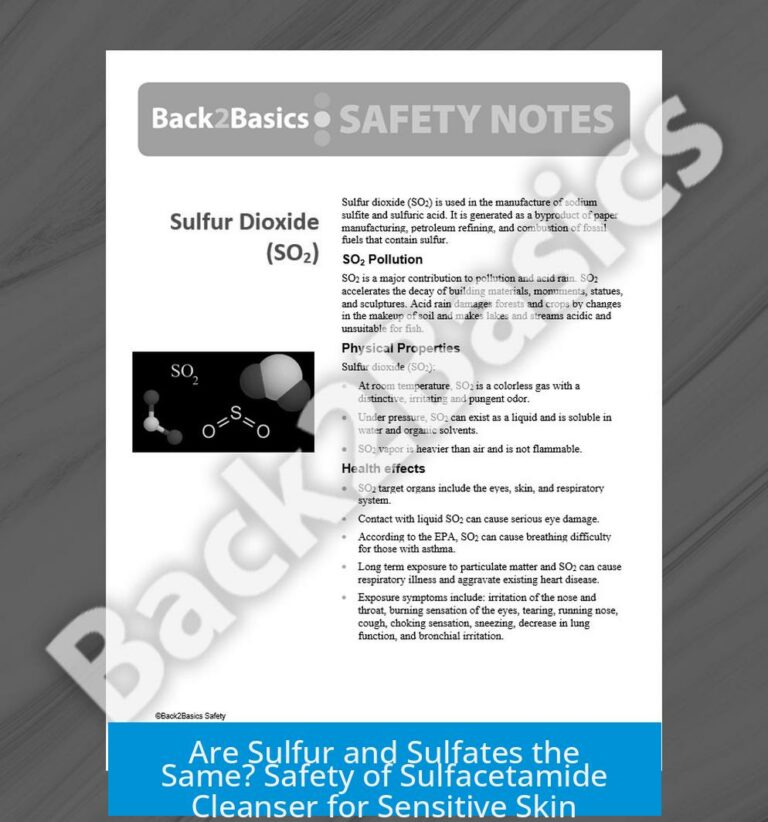What is Your Favourite Element and Why? Mine is Nitrogen

Nitrogen stands out as a favourite element for many due to its vital role in explosives and extensive research applications. It is a nonmetal that dominates the Earth’s atmosphere, making up about 78% by volume. Its unique properties make it central to both industrial and scientific fields.
Why Nitrogen is Favoured

- Role in Explosives: Nitrogen’s ability to form compounds rich in nitrogen-nitrogen bonds, like TNT and ammonium nitrate, underpins its importance in explosives. These compounds release vast amounts of energy rapidly, which makes nitrogen crucial in mining, construction, and defense sectors.
- Research Focus: Nitrogen’s chemistry is broad and complex. It participates in the synthesis of fertilizers, pharmaceuticals, and polymers. Many researchers focus on nitrogen compounds, evident in studies ranging from nitrogen fixation to environmental impacts.
- Biological Importance: Though not explicitly mentioned, nitrogen’s role in amino acids, DNA, and proteins adds to its significance. It is essential for life, cycling through ecosystems via the nitrogen cycle.
Comparing Nitrogen with Other Elements
Some prefer metals like manganese, appreciating its colorful complexes and varied chemistry. However, nitrogen’s versatility and relevance in both industry and biology make it appealing. The fascination with nitrogen often comes from hands-on laboratory experiences and research engagement.

Summary Table of Nitrogen’s Appeal
| Aspect | Details |
|---|---|
| Element Type | Nonmetal |
| Atmospheric Presence | ~78% of Earth’s atmosphere |
| Industrial Use | Explosives, fertilizers, chemical synthesis |
| Research Focus | Extensive across multiple chemistry fields |
| Biological Role | Component of proteins and nucleic acids |
Key Takeaways

- Nitrogen is a common favourite because of its explosive chemistry and extensive scientific research.
- Its nonmetallic nature and abundance make it unique among elements.
- It plays a critical role in agriculture and biological systems.
- Interest in nitrogen often arises from practical lab work and study focus.
What Is Your Favourite Element and Why? Mine Is Nitrogen.
Picking a favorite element sounds like a quirky question. Yet, it dives deep into what sparks our curiosity, creativity, or even oddly personal connections. My favorite element is nitrogen. Let me explain why, and why you might just rethink your periodic table favorites too.

First, a confession: elements aren’t just letters and numbers on a chart. They’re players in a massive, fascinating game of chemistry that surrounds us every second. Choosing one feels like picking your favorite player from a championship team—each has a unique skill set, personality, and story.
So, why nitrogen? This element, a non-metal, might not flash like the golds of the metals or smoke and fizzle like bromine’s mysterious red vapor, but nitrogen quietly runs the show in life, industry, and even the most explosive applications.

Nitrogen: The Unseen Giant of Life and Science
Nitrogen makes up about 78% of Earth’s atmosphere—yes, it’s the vast majority of the air we breathe. You might not “see” it, but without nitrogen, life as we know it would collapse. Plants need nitrogen to grow; our DNA, proteins, and amino acids are tied to nitrogen. It’s literally part of our biological blueprint.

Imagine a world without nitrogen: no fertilizers, no amino acids, no explosives either. That last one might sound ominous but reveals the element’s power. Nitrogen-rich compounds fuel fireworks, bombs, and rocket propellants, producing massive energy bursts because nitrogen atoms push compounds to their breaking point in jaw-dropping ways.
And speaking of explosives—here’s an interesting tidbit from the chemistry world: many researchers focus their entire careers on nitrogen chemistry. There’s just so much to uncover! Complex nitrogen compounds open doors to new materials, pharmaceuticals, and even challenges in green chemistry. So, when someone says, “Mine is nitrogen,” it often comes with a passion for discovery and an appreciation for this element’s versatility.
Comparing Nitrogen with Other Fascinating Elements
Let’s briefly stroll through some other favorites to see what makes nitrogen stand out.
- Palladium: Called the “Swiss Army knife” of metals, palladium facilitates catalytic converters and is cherished in jewelry. It’s super useful but can’t compete with nitrogen’s life essentials.
- Bromine: Known for its dramatic red, fuming liquid form, bromine is exciting and dangerous. It’s a show-off, while nitrogen works quietly in the background.
- Iron: The classic favorite, foundational to civilization’s tools and infrastructure. Dependable and everywhere, but nowhere near nitrogen’s biochemical importance.
- Xenon: The aloof noble gas, reactive only when it chooses, and prized for exotic applications. Cool, yes, but nitrogen literally sustains life.
- Carbon: The backbone of organic chemistry, carbon builds life’s framework. Nitrogen partners with carbon to create the molecules that define us, making them teammates rather than rivals.
Elements have unique stories, but nitrogen wears many hats gracefully. It’s fundamental, powerful, and full of hidden complexities.
The Cool Chemistry of Nitrogen You Probably Didn’t Know
Nitrogen seems inert in the atmosphere—happy just hanging out as N2, a pair of nitrogen atoms bonded tightly, barely reacting with anything. But smash it apart, and you unleash one of the most energetic elements in the universe.
This dinitrogen molecule is stubborn, resisting reactions due to its triple bond. Breaking this bond takes a lot of energy—which is a blessing and a curse. It preserves nitrogen in the atmosphere, but plants can’t use nitrogen gas directly. They need it “fixed” into usable compounds. Enter nitrogen-fixing bacteria and the famous Haber-Bosch process, which revolutionized agriculture by synthesizing ammonia from atmospheric nitrogen. Without this, feeding the world would be nearly impossible.
Exploding nitrogen compounds? Think TNT, nitroglycerin, and other explosives where nitrogen’s presence creates instability but also massive power. Yet, nitrogen compounds also build life-sustaining molecules—a paradox if there ever was one.
Practical Tips and Fun Uses of Nitrogen
- Liquid nitrogen is a crowd favorite for science demos. Its ultra-cold temperature can freeze objects instantly. Ever seen a flower snap like glass or a balloon shrink and pop? That’s liquid nitrogen magic.
- Nitrogen gas is used to inert environments in food packaging, lasers, and electronics manufacturing. It keeps oxidation and fires at bay, showing its protective side.
- Sports? Athletes use nitrogen to fill bicycle tires and race car tires for stability since it leaks less than regular air.
Does your favorite element do all that? Exactly!
A Little Nitrogen Humor—and Why We Love It
Call it nerdy, but nitrogen has its own fan club. One chemist confessed: “Non metal- Nitrogen for the win (lol).” That sums it up nicely—this element wins on versatility and a bit of mischief with explosives. It’s like the quiet kid in class who turns out to be a genius. And hey, if your research focuses on nitrogen (like this author has), it’s a special bond.
Then there’s the community vibe. Nitrogen often pops up alongside manganese complexes in lab discussions—“Manganese’s pale pink complexes were a joy… but nitrogen steals the show.” That’s chemistry friendship for you.
What About Other Non-Metals? Nitrogen’s Fellow Stars
For comparison, here’s a quick glance at other notable non-metals and why they’re beloved:
- Bromine: Fiery, red liquid—dangerous and dramatic.
- Iodine: Purple vapor that looks magical but also essential for humans.
- Oxygen: The breath of life literally, vital for combustion and respiration.
- Helium: Light, non-reactive, and the life of the party in balloons and MRI machines.
- Xenon and Krypton: Rare, mysterious noble gases with cool light-up properties.
- Phosphorus: First element discovered, essential but ‘cute’, not toxic compared to its neighbors.
But when pushing the boundaries of research or inhaling life’s essential wonder, nitrogen keeps coming back as the hero. It’s the element that balances power and subtlety perfectly.
Final Thoughts: Which Element Deserves Your Crown?
So, what about you? What is your favorite element and why?
Is it the flashy metals like platinum and palladium? The mysterious noble gases? Or perhaps the simple, yet vital nitrogen that rules the sky and our cells?
Picking your favorite element can reveal how you view the world. Are you a firecracker like bromine? A practical team player like iron? Or a quiet genius like nitrogen?
Whichever you pick, remember: every element has a story. And if your favorite is nitrogen, welcome to a club that loves the silent strength behind explosions, life, and cutting-edge research. It’s not just an element; it’s a lifestyle.
In Short
- Nitrogen is essential, making up most of the atmosphere and fundamental to life’s chemistry.
- It features in explosives, fertilizers, and high-level research.
- Many chemists gravitate toward nitrogen for its versatility and mystery.
- Comparing it to other elements highlights its unique blend of power and subtlety.
- Everyone’s favorite element reflects their personality and interests in the chemical world.
Got a favorite element? Share it! Who knows, nitrogen might just win you over next.
What makes nitrogen a popular favorite element?
Nitrogen is linked to explosives and many scientific studies. These aspects draw interest. Its role in essential chemical processes adds to its appeal.
Why do some researchers prefer nitrogen?
Many focus on nitrogen because it plays a key role in their work. It is central to various experiments and chemical reactions they study.
How does nitrogen compare to metals like manganese as a favorite?
Some like manganese for its unique color and lab experience. Others prefer nitrogen for its wide use and significance in science.
Is nitrogen chosen more for practical reasons or personal interest?
Often, the choice comes from practical research needs. But the element’s properties can also inspire personal fascination.
Are there specific uses of nitrogen that make it special?
Nitrogen’s use in explosives and its presence in many compounds make it important. This practical significance often influences preference.




Leave a Comment